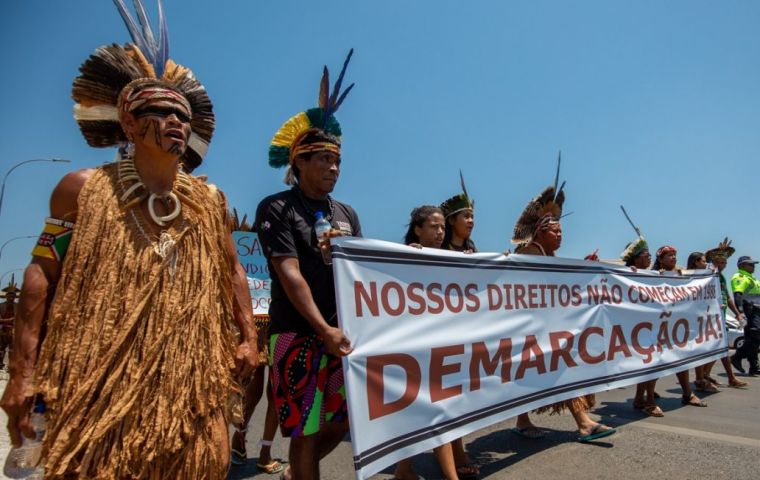
BRASILIA, April 24 (NNN-AGENCIA BRASIL) — Brazilian authorities announced this week that the Constitution of South America’s largest country, originally penned in Portuguese, would be translated into the languages of the indigenous tribes in a move to fully bring that part of the population into the rule of law, Agencia Brasil reported.
Pursuant to the Living Indigenous Language in Law program promoted by the Office of the Attorney-General alongside the Ministry of Indigenous Peoples and the Ministry of Justice and Public Security, the text will also become available in Guarani-Kaiowá, Tikuna, and Kaingang, the most widely spoken indigenous tongues, it was explained.
Reaching a common understanding between indigenous peoples and lawmakers is the main objective of the plan. To ensure cultural integrity, the program should invite indigenous leaders and community members to help draft texts that take into account the interaction with indigenous legal systems. Community members will also be trained to gain better access to national and international laws and public policies.
The new materials will be disseminated among traditional communities, lawyers, representatives of all three branches of power, councils, universities, and nonprofit associations working on public policies and the rights of indigenous people.
Meanwhile, Brazilian native tribes are holding their annual protest in Brasilia through April 26 to protest against the so-called time framework whereby indigenous peoples only have the right to the lands they were occupying by Oct. 5, 1988, when the new Brazilian Constitution was adopted.
This thesis was deemed unconstitutional by the Federal Supreme Court (STF) in September last year. However, it was subsequently incorporated into legislation through a bill passed by the National Congress which was vetoed by President Luiz Inácio Lula da Silva but reinstated through a Congressional veto override.
The protest features a comprehensive agenda comprising debates, report presentations, marches to the Three Powers Square, and various political engagements at the National Congress, including solemn sessions, public hearings, and meetings. Additionally, cultural performances and exhibitions showcasing handicrafts and indigenous art representing all Brazilian biomes will be staged.
The Free Land Camp is also to condemn a recent surge in violence targeting indigenous communities as well as an increase in suicides among native Brazilians. According to the National Articulation of Indigenous Peoples, citing a study by the Proteja Collective, six indigenous leaders were murdered between December last year and early 2024. A turnout of over 6,000 indigenous individuals is expected at this year’s event. — NNN-AGENCIA BRASIL






